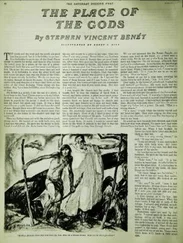When in Italy, we stay in small family hotels in Milan and Rome or with Pado’s parents in Umbria. In Germany, we have a bed-and-breakfast near the motorway which has sticky muesli and cartoons for children on the TV. In Madrid, the owner of our hotel is so chatty that he keeps us waiting for our room keys to tell us stories we’ve heard a hundred times. Over the reception desk there are posters from Pado’s scientific conferences coloured with microscopic close-ups of viruses and then a torn, withered photo of the owner’s wife carrying dried sausages from Cantabria, the sun setting on her skirt. Ama can’t sleep in the Madrid hotel because of the neon street signs outside our room so we wrap her clothes across the windows and whisper in the night. Before going to bed, Ama sniffs the sheets, one by one, to check they are clean. If she finds a hair, a scab, a toenail or even a trace of scent, she calls the reception in a small voice and we watch as astonished maids remake the beds with Ama following behind, smoothing the spreading white surfaces with her drowsy hands. When we try to help her, she gently pushes us to one side, ‘Just let me do it, please.’
Pado always states, ‘There’s no point telling me things I know. Tell me something new’, so when he pops his head into our hotel room to say ‘Goodnight’, you know you have to hurry to come up with new facts fast:
‘If you weigh all the insects in the world, they are heavier than all the animals put together!
‘Every single snowflake is unique!’
‘Not bad, Jean-Pio, I’ll have to think about those.’
Giulio invents a new chicken joke. It still has to cross the road, but it makes Pado laugh all the same. When Pado leaves, Giulio asks me where I get my facts from. I don’t really know. I suppose I just pick them up, here and there, glancing through newspapers in hotel lobbies, listening to Pado’s colleagues, staring out of the car window. Giulio and I have a deal: if I get up before him, I have to wake him gently, ask him what he is dreaming about and suggest a good ending. He then goes back to sleep and tells me what happened later. Duccio stands in front of the mirror ruffling his shiny black hair. He hates the way Ama combs it neatly to the side, every night, before he goes to bed. If it weren’t for our parents, he’d never wash his hair or change his clothes. Then no one would smile in the street or beam thirsty grins at him again. When Ama overhears our night-time whispering, she hisses a rustling ‘Ssssh, be quiet!’ and, in between her words, you can hear the pumping exhausts that choke her day, the sound of car doors slamming and the creasing of maps hiding roads that always carry on over the page.
Our hotels are usually within sight of the conference centres and we park the car in between hundreds of others. The rooms are teeming with fellow scientists and the foyers thick with greetings: ‘Meet my wife and children’, ‘I read your book’, ‘Will you be presenting your recent statistics?’
Ama jots down notes for Pado. Her memory sweeps backwards and forwards like the windscreen wipers on the car. She collects papers, remembers dates, faces and addresses. ‘Isn’t that xsthe pathologist from Stuttgart?’ she nudges Pado, writing down a name called up from the depths of her sleepless mind.
Ama is Pado’s translator too. She translates his speeches and articles, rolls out the languages he needs. She says the important thing is never to have an accent. That’s why no one ever knows where she comes from, not even her. Pado doesn’t care about accents, and whatever language he speaks, it sounds like Italian. If we have the room next to our parents, we can hear Ama correcting Pado, stopping and insisting on an intonation. Pado listens to her, running the cold bathroom tap over his toes, swollen from accelerating, foot down against the floor, all day long.
‘Please Gaspare, just try once more, for me,’ Ama pleads.
Then the rosary of Pado’s pronunciations starts up again and coils through the wall that divides us, an echoing rhythm to sleep to.
When we don’t even have time to stop in a hotel, we rush into roadside bars and hurry the waiters with ‘no time to waste’ sandwiches. Then we race back to the car and drive into the night, humped over our knees and our mother wide-eyed in the darkness. Pado uses the time to rehearse his speeches: ‘Ladies and Gentlemen, members of the scientific community …’ He presents his findings on smoking and the different aspects of lung congestion to the cold windscreen with Ama’s lost face painted into the glass.
Our car rarely breaks down. ‘It’s a stroke of luck’, say the mechanics. The outside is so dirty it has tiny furrows of green growing along the edges, and tinges of grime on the bonnet that suck up the sliding rain like silent parched mouths. Ama wishes the car would conk out from time to time, simply shudder to a standstill like a wounded car should. Behind her closed eyes, she longs for the sound of the engine spluttering, the slow, burning smell of overheating or the sudden scrape of the exhaust as it finally drops onto the road.
‘Cars only break down if they’re left in garages’, that’s how Pado sees it.
Ama has a big bin at her feet to keep the seats tidy. She’ll take everything except eggshells. They smell and turn grey, so you have to wait for the country lanes and roll down your window to throw them into a bush. Sometimes we miss and Pado tells us it doesn’t matter as eggshells rot fast. Ama is not so sure, she reckons they take years to blend into the earth. That means that there must be eggshell everywhere we’ve been, a thousand jagged fragments dotted around Europe, under bushes, lining puddles in the road.
The car dashboard has dark rings of wood that project weaving patterns onto the rear window in the sun. From time to time, Ama brings out a dusting cloth and polishes it. She keeps the cloth in the glove compartment next to her music tapes. She has ten tapes in all, stacked into two piles of five. Pado keeps his tapes separate, crammed into the pouch to the side of his seat. Ama’s cassettes are all of Liszt. Pado’s are all Verdi. The agreement is that Liszt is for the gentle drives through open countryside, whilst Verdi is for motorways and driving fast, books fluttering in the wind. At least, that’s how it’s meant to be, but Pado is always in a hurry and Liszt rarely makes it out of the glove compartment. If Ama does manage to get a Liszt cassette, it’s only because Pado knows that, sooner or later, as the curves and bends speed up, we are going to have to have Verdi and nothing else. As Ama’s eyes are beginning to brush the leaves outside, floating to the notes of her Liszt, Pado lowers the volume until the music is inaudible, until Liszt merges with the indicator and the murmuring of the tyres against the hard tarmac. Then he pulls out his Verdi cassette, one hand on the wheel and the other on the tape machine, and plugs in opera music at top volume. Ama might be lost in tree tops, curled around distant twigs, but she sits up immediately.
‘Where’s my tape?’ she snaps and stretches for the volume button, her ears ringing with noise.
Pado stops her, ‘We have to push on.’
Ama retreats into hostile mutterings, her smothered complaints frothing out of the windows, trickling down the sides of the car.
Our parents’ struggles last for a while, falling and rising, depending on the traffic ahead or the volume on the tape machine. If Pado is still shouting, ‘It’s bloody Verdi or nothing at all!’, he speeds up to prove his point, chin up against the wheel. His foot pumps the accelerator in an outraged, stamping skip. The car surges forward, shooting ahead like a ball. We bounce over bumps, scrape along walls, hoot people off zebra crossings. Ama stares into her lap, her white hands twitch and fidget with the folds of her dress. She breathes out slowly, at regular intervals, to keep calm. After a few near misses, and as the arrow of the speedometer wrenches at its dial, she hovers her fingers menacingly above the hand brake.
Читать дальше












